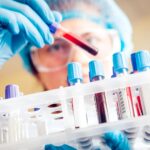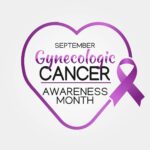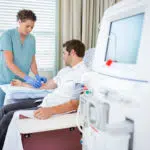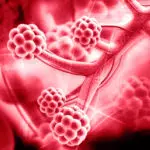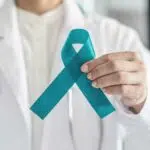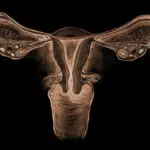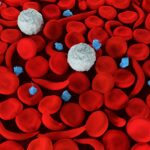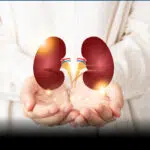Never choose indifference – choose to fight. This September, Polycystic Ovarian Syndrome (PCOS) Awareness Month promotes further research and knowledge of this terrible disease. Affecting as much as 20% of women between the ages of 18 and 44, PCOS is one of the leading causes of poor fertility, and while there currently no known cure, treatment can significantly reduce the risk of long term complications such as type 2 diabetes, heart disease, and endometrial disease. Arm yourself with education about PCOS, and as we continue to learn more, the closer we get to understanding this disease and eliminating it.
PCOS Awareness Month timeline
The World Health Organization estimates that PCOS affects 116 million women worldwide.
At a National Institute of Health (NIH) sponsored conference on PCOS formal diagnostic criteria were proposed and afterwards largely utilized from then on.
The condition was first described in 1935 by American gynecologists Irving F. Stein, Sr. and Michael L. Leventhal.
The earliest published description of a person with what is now recognized as PCOS was in 1721 in Italy, by Italian scientist Antonio Vallisneri.
How to Observe PCOS Awareness Month
Talk to your friends
Due to its nature, PCOS is not the most comfortable thing to speak to others about. Don’t be afraid to verbalize any concerns you may have, and find out for sure if you need to speak to a doctor. Do not let a potential problem be ignored.
Check for symptoms
PCOS symptoms are quite noticeable. If you experience irregular cycles, excessive adult acne, unusual hair growth or hair loss, unexpected weight gain, cannot get pregnant, or are pre-diabetic or have type 2 diabetes, see your doctor.
Talk to your doctor
If you've noticed multiple symptoms, especially missed periods, acne, and hair growth, check in with your doctor or endocrinologist for a blood test.
5 Facts You Should Know About The Causes Of PCOS
Excess insulin
Insulin is the hormone produced in the pancreas that allows cells to use sugar, your body's primary energy supply. If your cells become resistant to the action of insulin, then your blood sugar levels can rise and your body might produce more insulin. Excess insulin might increase androgen production, causing difficulty with ovulation.
Low-grade inflammation
This term is used to describe white blood cells' production of substances to fight infection. Research has shown that women with PCOS have a type of low-grade inflammation that stimulates polycystic ovaries to produce androgens, which can lead to heart and blood vessel problems.
Genetics
Research suggests that certain genes might be linked to PCOS.
Excess androgen
Production of abnormally high levels of androgen in the ovaries, resulting in hirsutism and acne.
Unknown
While doctors and researchers continue to search for the exact cause of PCOS, the sad truth of the matter is that, as of today, we still do not know the direct link to the cause of PCOS.
Why PCOS Awareness Month is Important
PCOS is manageable
The primary treatments for PCOS include lifestyle changes and medications. With these treatments, there are four goals that are considered realistic: lowering of insulin resistance levels, restoration of fertility, treatment of acne, and restoration of regular menstruation.
The main medication is self-prescribed
Diet is considered the best form of treatment for PCOS. Reducing the intake of simple carbohydrates, coupled with successful weight loss, is the most effective method of restoring normal ovulation/menstruation.
Simple prescriptions can go a long way
Birth control is the most common PCOS treatment for women who don't want to get pregnant. Hormonal birth control, such as pills, a skin patch, vaginal ring, shots, or a hormonal IUD (intrauterine device), can help restore regular periods.
PCOS Awareness Month dates
| Year | Date | Day |
|---|---|---|
| 2025 | September 1 | Monday |
| 2026 | September 1 | Tuesday |
| 2027 | September 1 | Wednesday |
| 2028 | September 1 | Friday |
| 2029 | September 1 | Saturday |



























